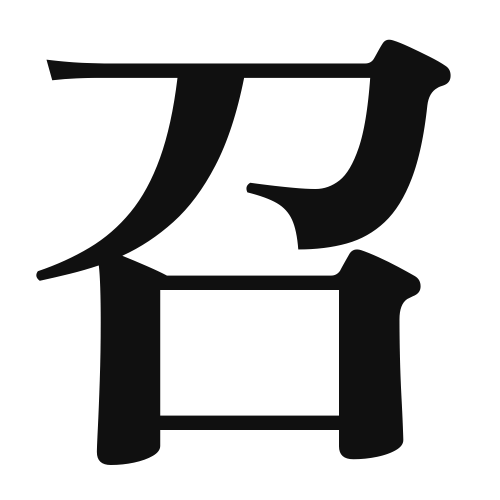1. Overview of Meaning
The kanji “召” (shou) generally means “to summon” or “to call.” It is often used in contexts where someone is being invited or called to a place or event.
2. Formation and Radical
Formation of the Kanji: The kanji “召” is a phonetic-ideographic character (形声文字). It combines the meaning of calling or summoning with a phonetic component that suggests its pronunciation.
Radical: The radical for “召” is “口” (kuchi), which means “mouth.” This relates to the act of calling or speaking.
3. Examples of Usage
Common Words and Phrases:
- 召集 (shou shuu) – to summon a meeting
- 召喚 (shou kan) – to summon (often used in a magical or supernatural context)
Example Sentences in Daily Conversation:
- 会議に召集されました。 (Kaigi ni shou shuu saremashita.) – I was summoned to a meeting.
- 彼は友達を召喚しました。 (Kare wa tomodachi o shou kan shimashita.) – He summoned his friends.
4. Synonyms and Antonyms
Similar Kanji:
- 呼 (ko) – to call, which emphasizes the act of calling out to someone.
- 招 (shou) – to invite, which has a more formal connotation of inviting someone to an event.
Antonyms:
- 拒 (kyo) – to refuse or reject, which is the opposite of summoning someone.
5. Cultural and Historical Background
Relation to Japanese Culture: The kanji “召” is often used in formal contexts, such as in government or traditional ceremonies, reflecting the importance of hierarchy and respect in Japanese culture.
Proverbs and Idioms: While there are no specific proverbs that prominently feature “召,” it is often used in formal invitations and announcements, highlighting its significance in social interactions.
